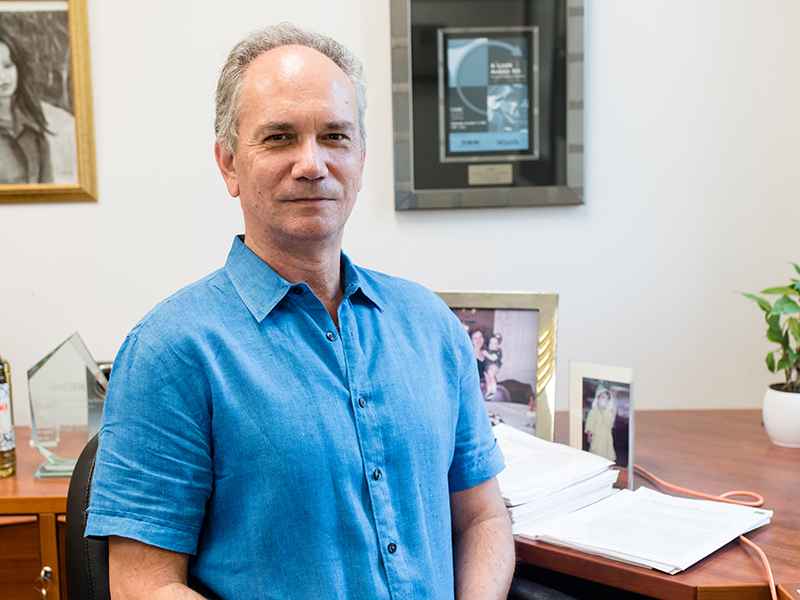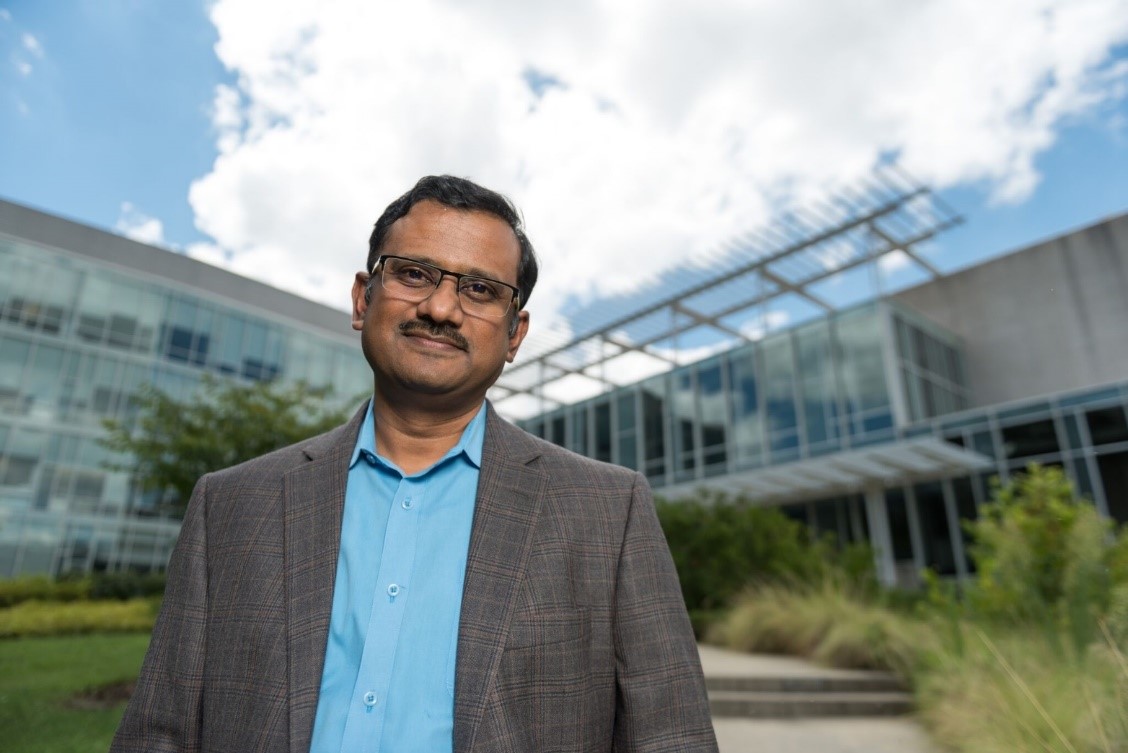New treatment approaches studied for liver, lymphoma cancers.
The more than $3 million in grants two University of Texas at Austin biomedical engineers secured earlier this year will fund much-needed, novel cancer therapies that take aim at two of the deadliest cancers — liver and lymphoma. The grants, awarded by the newly established Cancer Prevention & Research Institute of Texas, help fill the gap in funding that exists in the pre-clinical research phase.
Professor George Georgiou, professor in both biomedical engineering and chemical engineering, received more than $2 million to continue his pioneering work of engineering human enzymes for cancer therapy — in particular liver cancer, which has a median survival rate of only eight months.

George Georgiou, professor in the Cockrell School of Engineering’s Department of Biomedical Engineering
It has been known for years that when the amino acid arginine is not available, cancer cells that cannot synthesize this amino acid die. Destruction of the pool of arginine in blood can have a therapeutic effect for the treatment of liver cancer as well as lung cancer and metastatic melanoma. However, previous efforts to deploy bacterial arginine-degrading enzymes as a therapeutic had only marginal results because the patients’ immune system neutralized and destroyed the “foreign” bacterial enzyme. While humans also produce an arginine-degrading enzyme that could be therapeutically useful, it is very unstable in the blood and is not effective for therapy. Georgiou, along with research scientist Dr. Everett Stone and undergraduate student Lynn Chantranupong, engineered an arginine-degrading enzyme that isn’t recognized as foreign by the immune system and has optimal properties for use as a drug.
“We engineer human enzymes to display the necessary function and also pharmacological properties so that they can function effectively in the body,” says Georgiou, who holds the Cockrell Family Regent’s Chair in Engineering. “We hope that the human arginase will be the first of several cancer therapeutic enzymes we are developing for a number of other malignancies including central nervous system tumors and childhood leukemias.”
Georgiou hopes to gain regulatory approval for clinical trials by the end of 2011. He is collaborating with Dr. Steven Curley of M.D. Anderson Cancer Center in Houston and Dr. Art Frankel at Scott & White Hospital in Temple, who directs the only facility in Texas for the preparation of clinical-grade protein drugs.

Krishnendu Roy, associate professor in the Cockrell School of Engineering’s Department of Biomedical Engineering
Associate Professor Krishnendu Roy will use his three-year, $1 million award to develop a new type of polymer-based drug delivery system for a potential vaccine for B-cell lymphoma. He will be working in collaboration with Dr. Larry W. Kwak, chair of Lymphoma/Myeloma at MD Anderson.
“It’s a significant disease and an unsolved disease,” says Roy, the General Dynamics Faculty Fellow.
Roy’s team will create a “synthetic local immune center” at the site of the vaccination to “train the immune system to recognize cancer cells and eliminate them in an efficient manner.” They’ll do this by supplementing the vaccine with immune-modulating RNA molecules and certain proteins (chemokines) that attract immune cells.
Roy hopes to use this delivery system as a platform to deliver future vaccines that could target breast, colon, ovarian cancers, as well as melanoma.
“Tumors are very difficult to generate vaccines against primarily because they’re what we call ‘self-antigens’ — that is they’re our bodies’ own cells and our immune system naturally does not recognize these tumors,” Roy says. “So, for us to overcome that barrier and ‘re-train’ the immune system to generate a very efficient immune response against the tumor is a difficult challenge, and that is what we are trying to address here.”
